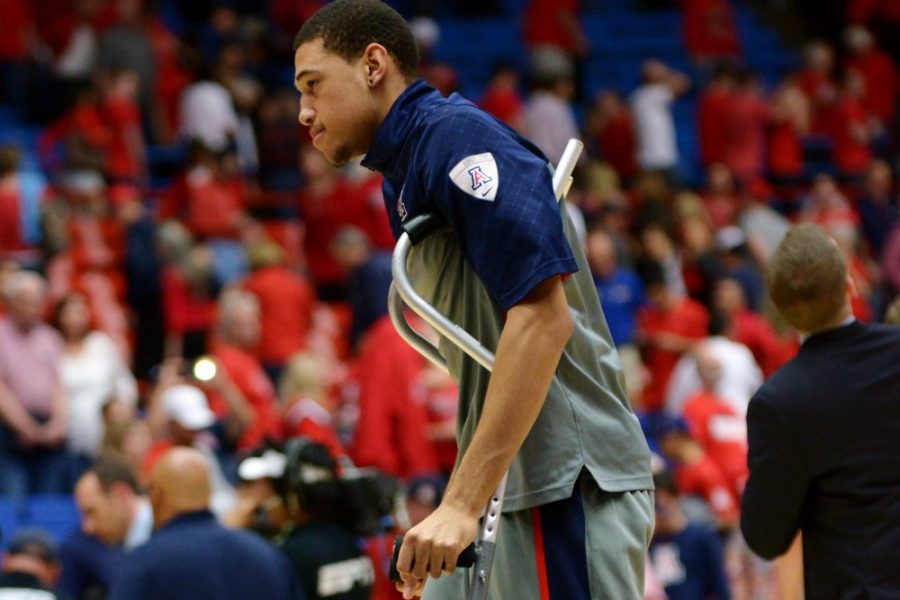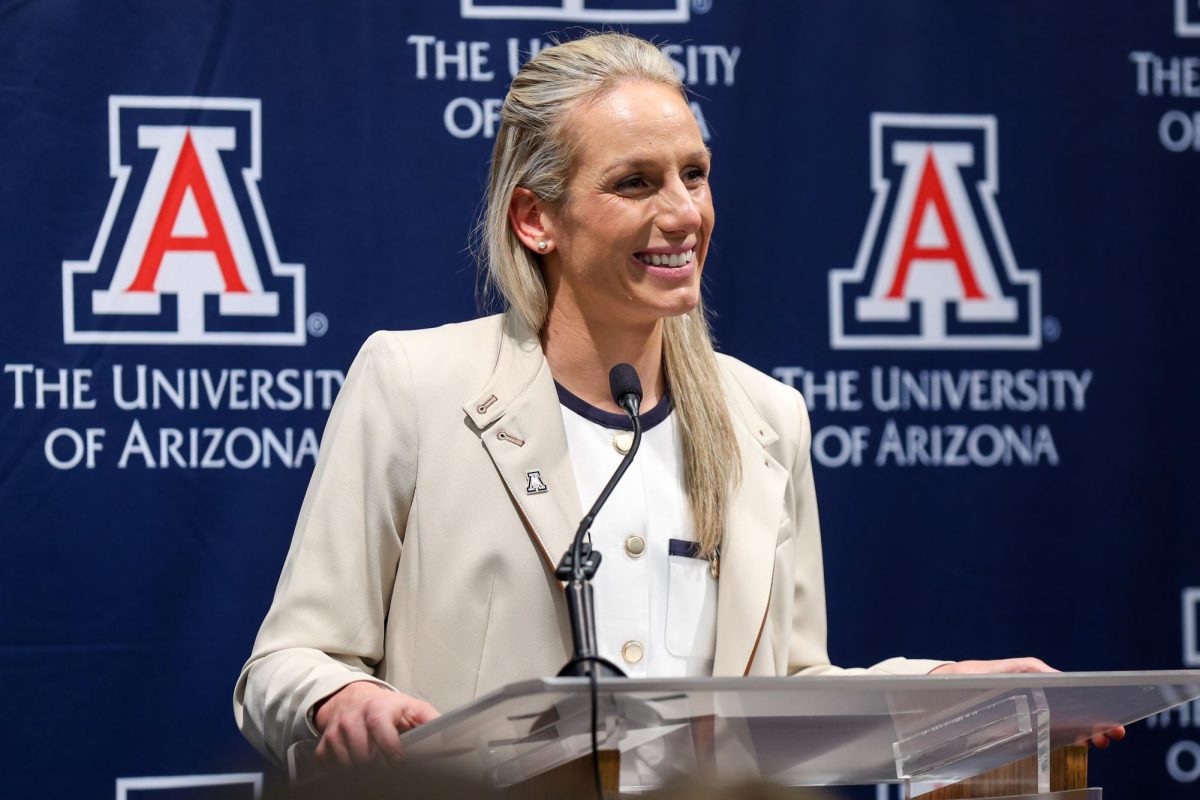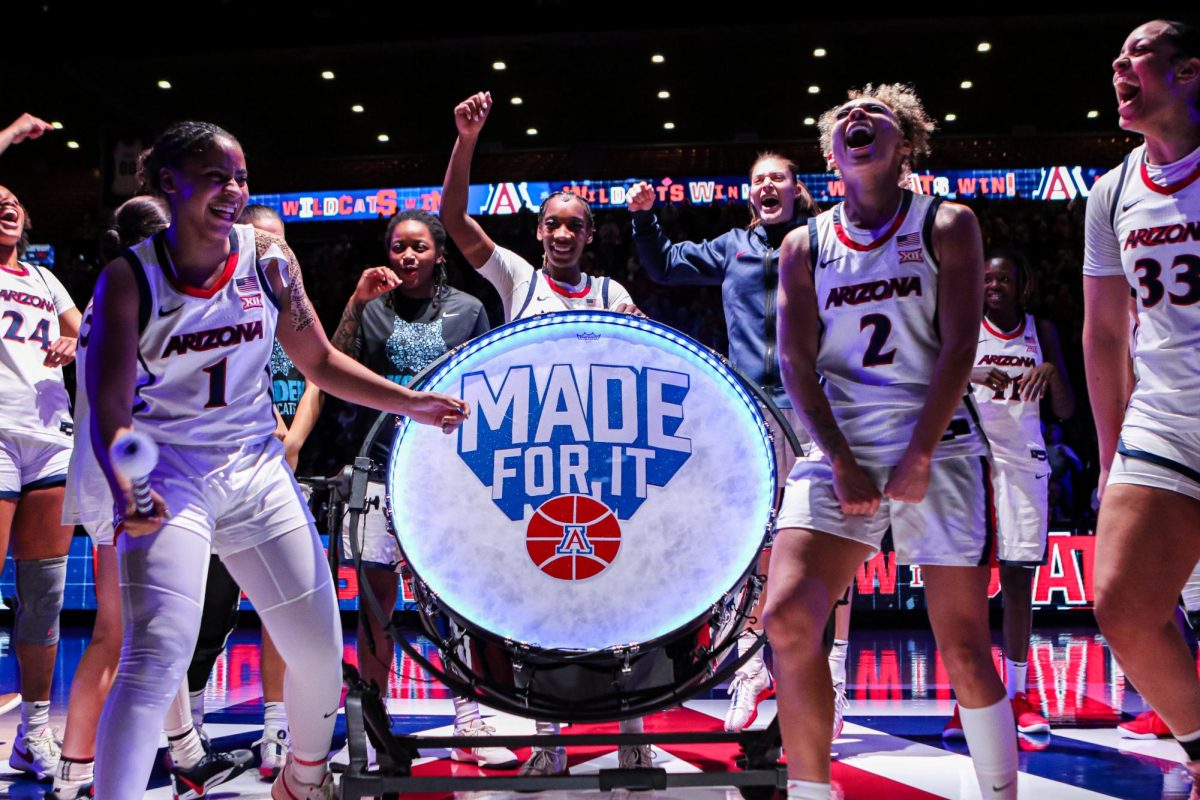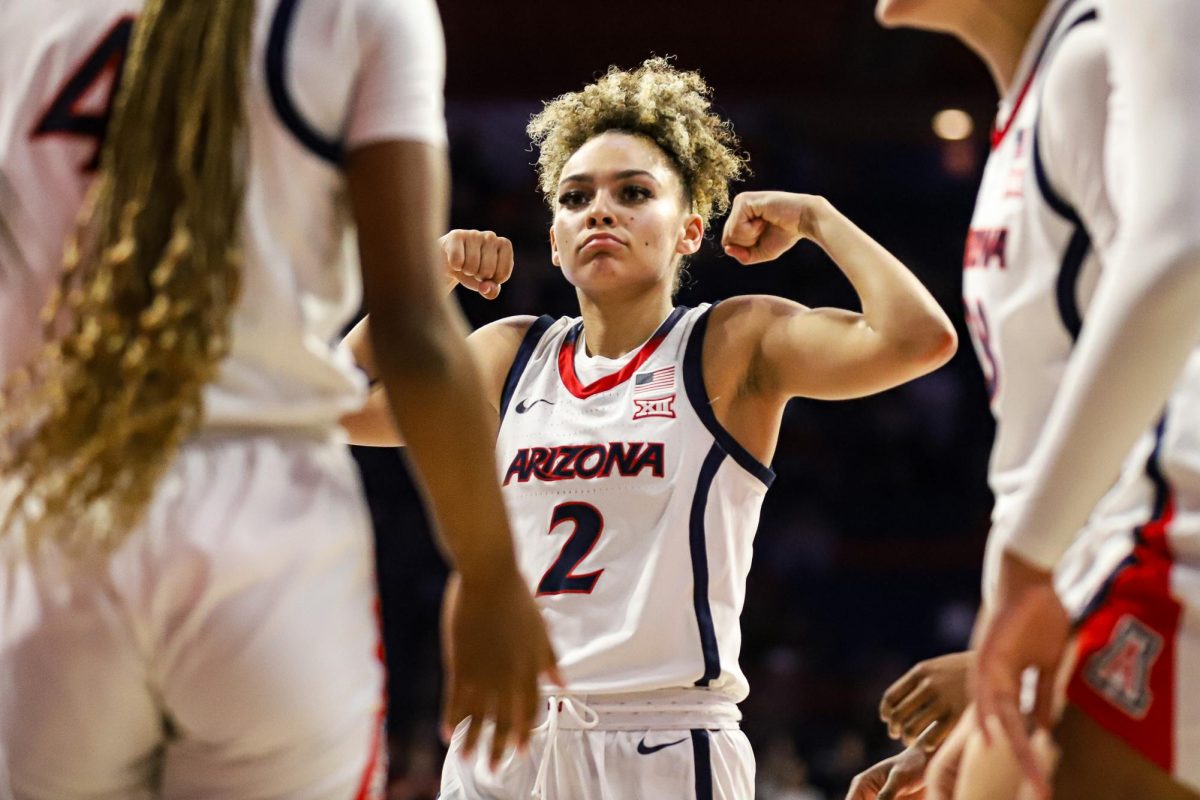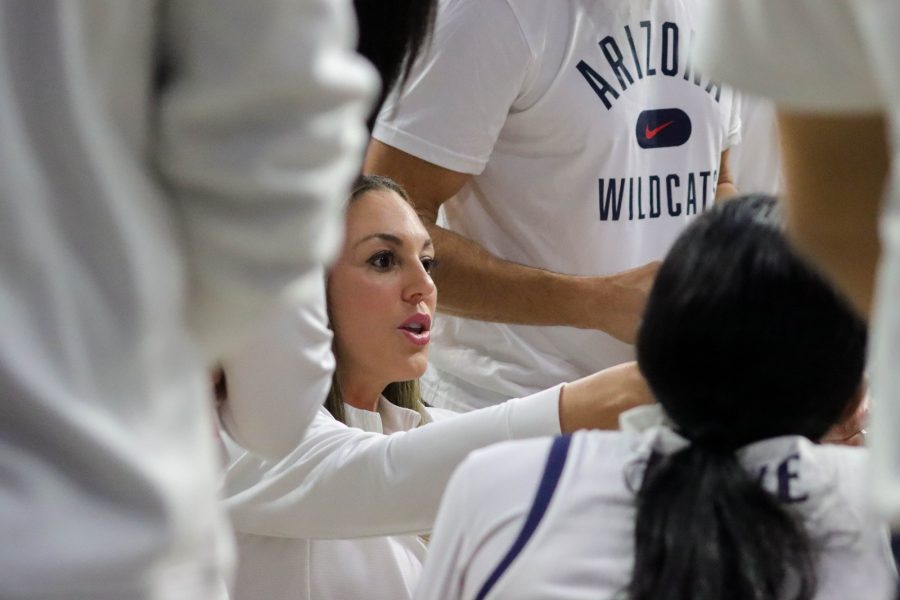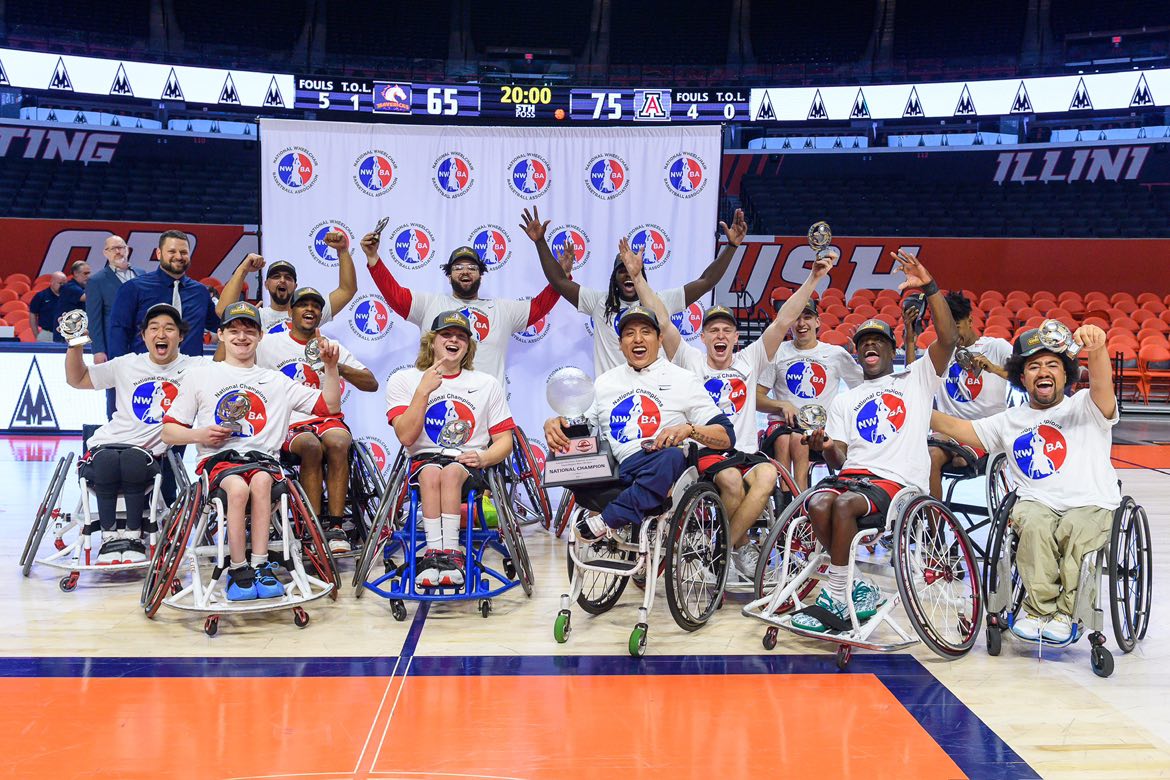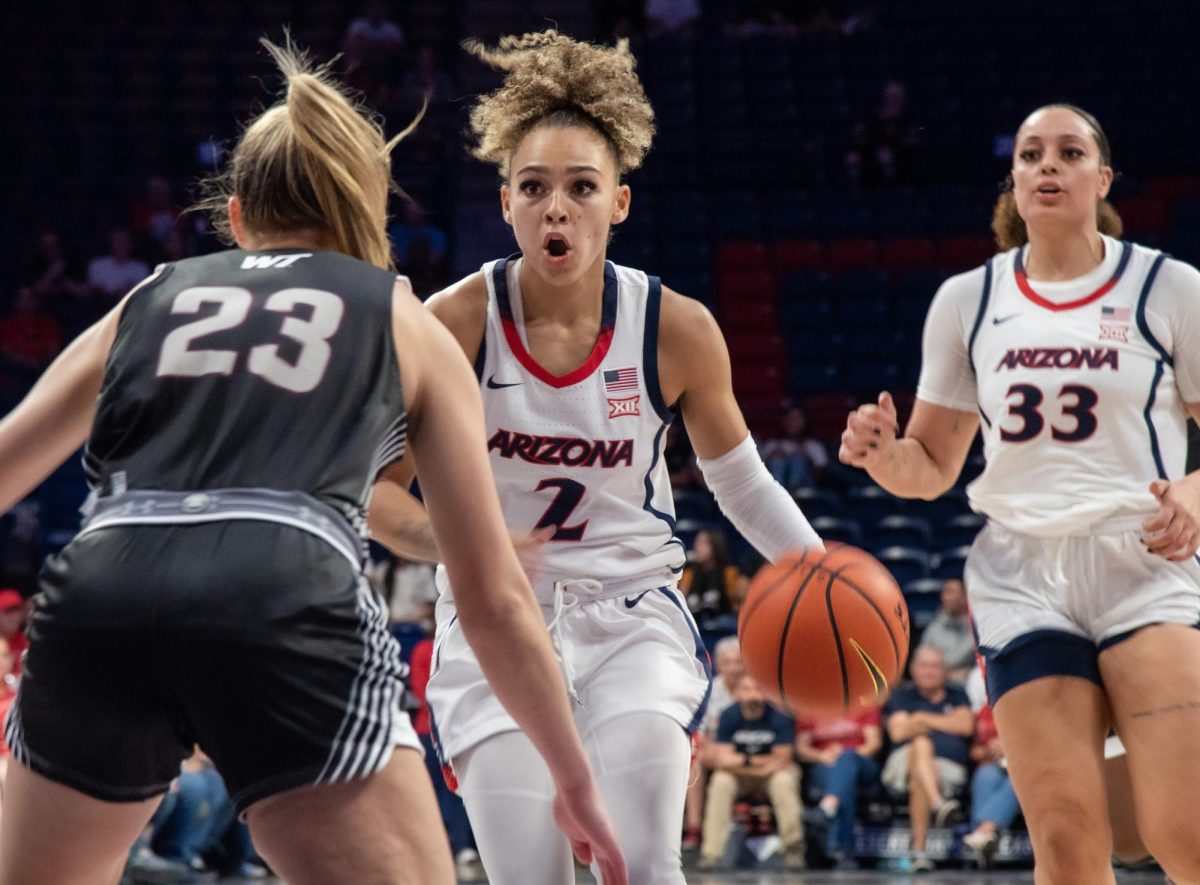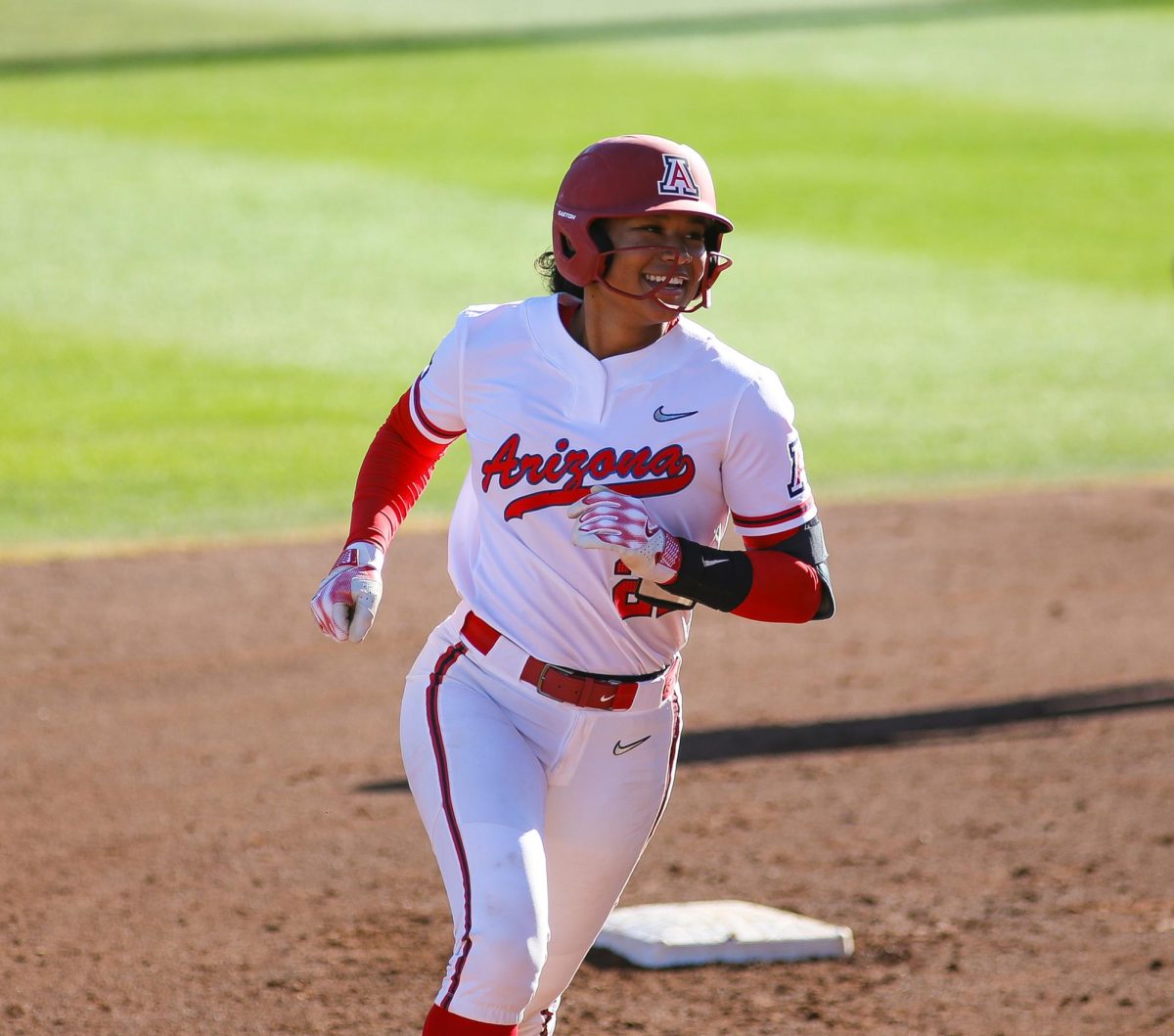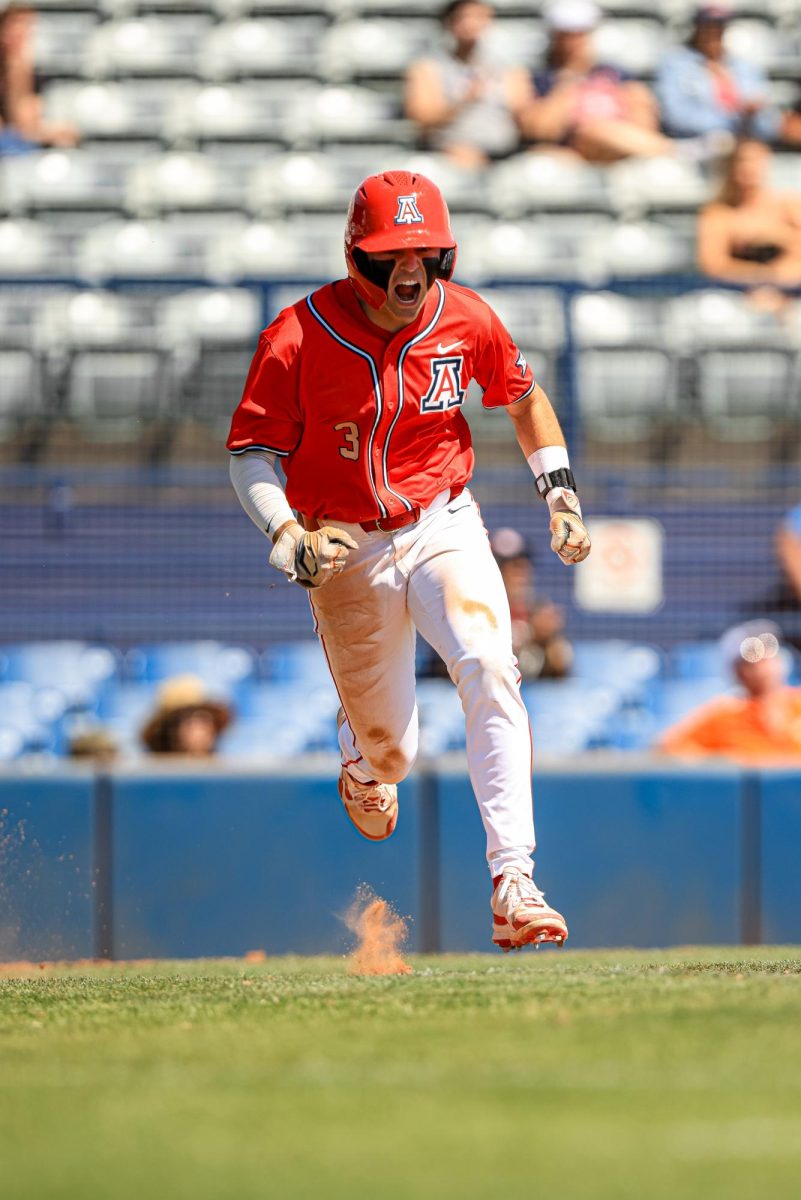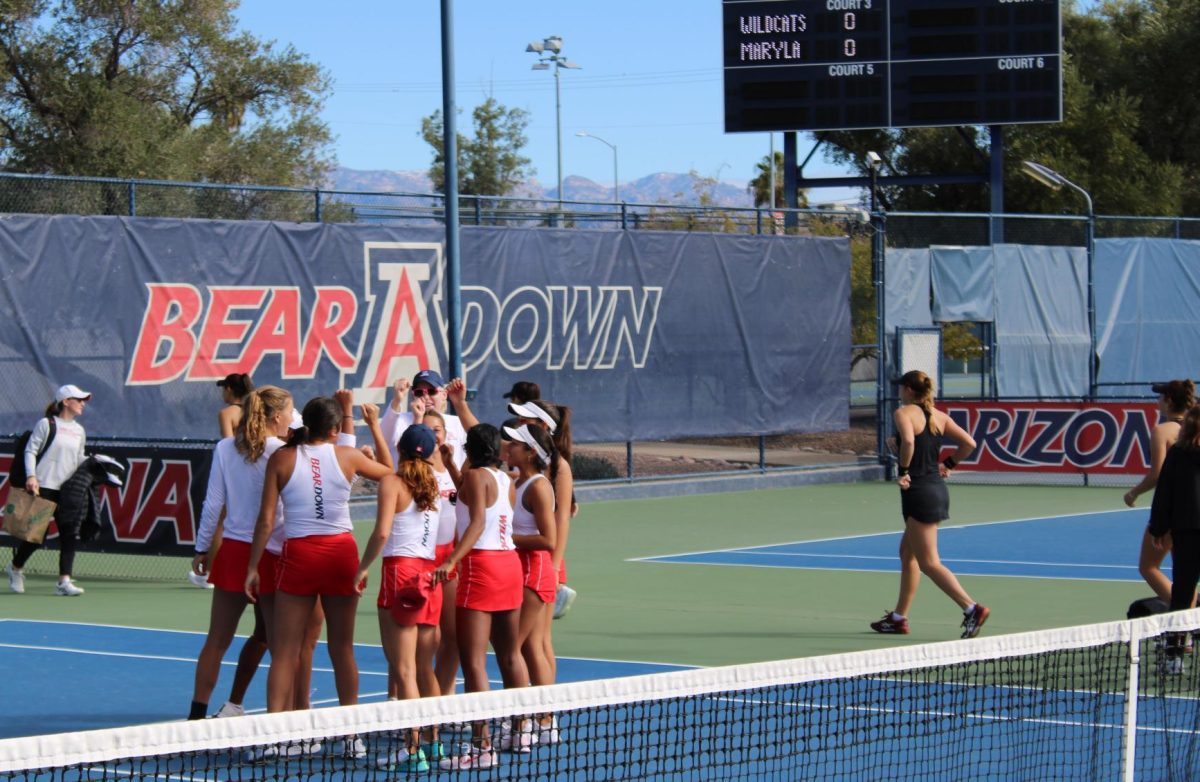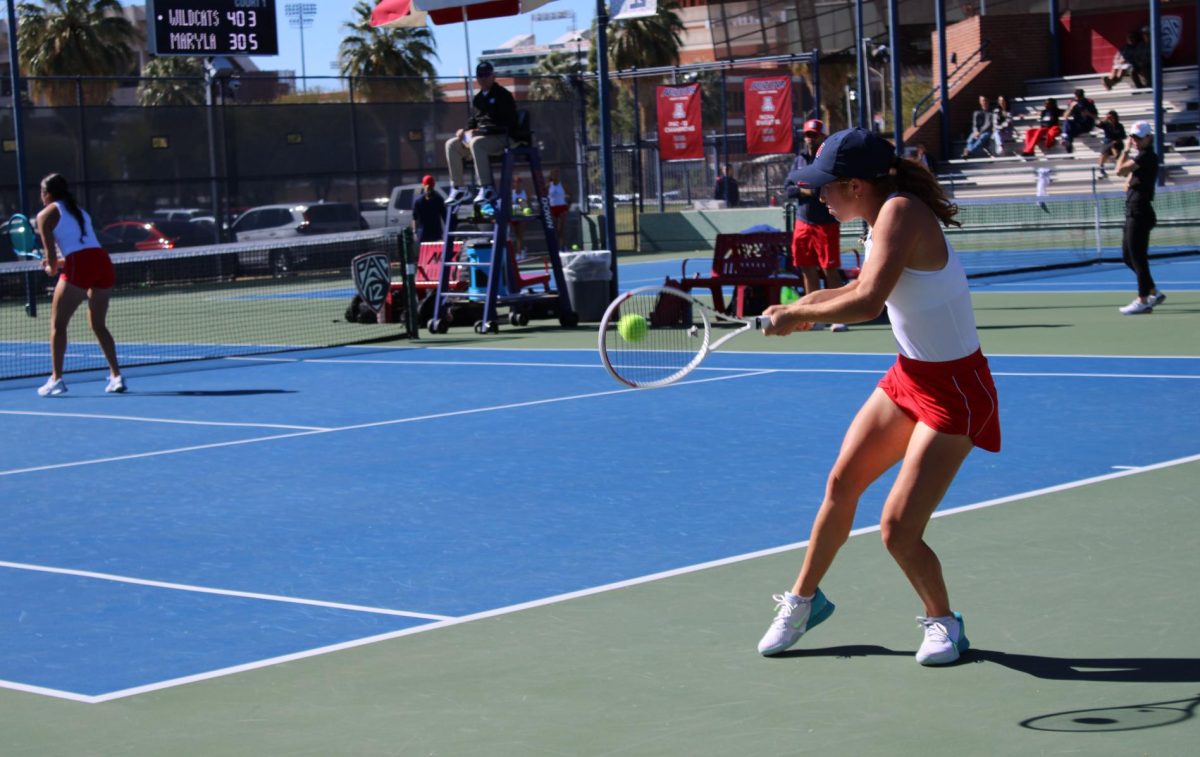On Feb. 1, the season quickly changed for the Arizona men’s basketball team.
When Brandon Ashley broke his foot during the game against California and was lost for the season, the Wildcats became a completely different team.
They were no longer a dominating rebounding team and no longer had the depth in the roster to match up and beat opposing schools that had a strong low post presence.
“The cat is out of the bag,” Arizona head basketball coach Sean Miller said following the Wildcats’ 70-64 victory over San Diego State in the Sweet Sixteen. “People say we’re not a big team; we’re not. When Brandon left us — our size is good, but it’s not great.”
In the Wildcats’ final five games they were out-rebounded by the opposition four times. The only time they weren’t out-rebounded was in their Elite Eight loss to Wisconsin. However, they only out-rebounded the Badgers by one (39-38).
In the 21 games prior to Ashley’s injury Arizona was only out-rebounded once and lost zero times. The game prior to Ashley’s injury the Wildcats were out rebounded 38-36 to Stanford but escaped the road game with a 60-57 victory.
“We rely on a three-guard lineup now more than ever,” Miller said about his team post-Ashley injury. “There are times when we play Rondae [Hollis-Jefferson] at the three with Aaron [Gordon] and Kaleb [Tarczewski], and that is our biggest group.”
With Ashley done for the season, Miller was forced to change some aspects of the team, including its identity.
Pre-Ashley injury, Arizona was a big, strong and long team. It could beat up on its opponents. It wore them out and eventually dominated them in the second half.
On Jan. 28, following a 65-56 loss at Arizona, Utah Utes’ head basketball coach Larry Krystkowiak compared the Wildcats with a healthy Ashley to a football team.
“To use a football analogy, it’s a team that runs the ball,” Krystokowiak said. “They grind on you and grind on you and eventually the defense gets tired of being on the field at the end of the game. There’s a lot to be said for the way they play.”
Arizona still was physical and relentless on defense even with Ashley gone, but the rebounding couldn’t be made up and changes needed to be made.
Instead of having a strong emphasis on rebounding and being physically dominating, Arizona focused more on being a skilled team that makes fewer turnovers. The once big and tough Wildcats were now more focused on being crafty and smart.
In the 16 games following Ashley’s injury, Arizona took much better care of the ball. The Wildcats turned the ball over 10 or more times in only five games after Ashley’s injury. Many of those five games were soon after the injury occurred, when the team was still adjusting to the change.
In their 21 games with Ashley in the roster, the Wildcats had about a dozen games with 10 or more turnovers.
“Arizona is a program where you can play freely on the offensive end [so losing Ashley] did change a little bit, I get a few more post ups a game, but mostly it’s changed on the defensive side of the court,” Arizona freshman forward Aaron Gordon said. “Throughout the first 21 games I was guarding two’s and three’s and switching, and now I have to guard four’s and five’s and that’s the biggest difference when Brandon went out, in my role.”
In the Wildcats’ final game against Wisconsin it was the Badgers’ 7-foot forward Frank Kaminsky who crushed Arizona’s season-long goal of winning the national championship.
His size, footwork and ability to shoot from anywhere on the court made him a match-up nightmare for Arizona’s slim roster. Kaminsky finished Saturday’s Elite Eight game with 28 points and 11 rebounds.
“The one thing that we haven’t really had an answer for is we were a great rebounding team, and no matter how well we’ve tried to keep it there we weren’t nearly as good of a rebounding team as we’ve climbed the ladder,” Miller said. “Brandon [Ashley] is a terrific player. [After his injury] we could have gone south or not achieved what we did. But we still were right here [Saturday], and that is a real testament to our team and really our coaching staff and everybody.”
—Follow Luke Della @LukeDella



